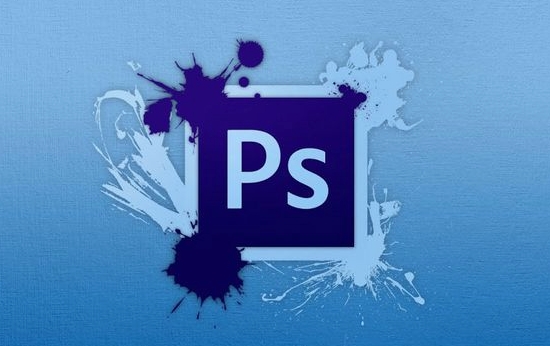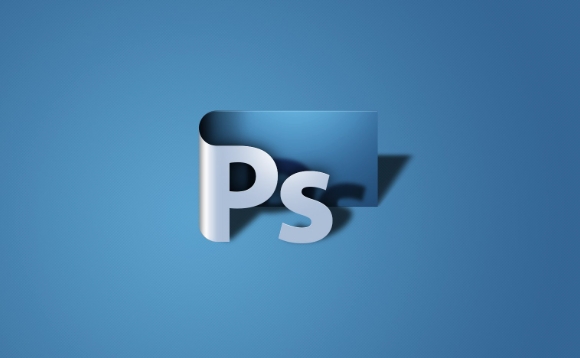Frame Tool is a practical but often overlooked tool in Photoshop for quick cutouts and layout designs. It can create content containers, automatically crop pictures and support vector shape scaling, suitable for beginners and quick results. How to use it includes: 1. Select Frame Tool in the Shape Tool group; 2. Select a rectangle or oval shape and draw a frame; 3. Drag in the picture to automatically crop; 4. Double-click the layer to adjust the position and scale of the picture. In UI design, it can be used to build components such as carousel diagrams, card layouts, etc., to unify the style through multiple Frame boxes and easily replace content, and to achieve rapid layout with the alignment tool. The small details that need to be noted are: Frame layer cannot be directly added to layer styles. When exporting, you need to check "Include Layers", you need to convert to a smart object before nesting and using it. You need to use the "Content Recognition" mode to move content. Mastering these key operations can improve efficiency and reduce repetitive work.

If you want to quickly cut pictures or design layouts in Photoshop, Frame Tool is actually a very practical but often overlooked tool. It is not as cumbersome as traditional selection tools, nor as complex as smart objects, and is more intuitive to use, especially suitable for beginners or when they need to produce results quickly.

What is Frame Tool?
Frame Tool is a tool in Photoshop that is specifically used to create "content containers". You can understand it as a shape tool with its own "cutting" function. If you draw a rectangle or an ellipse frame, then drag the picture or other layers in it, and it will automatically help you cut the shape.

- It won't change the content of the original image, it just "shows" the part you want to see
- Support vector shapes (can be scaled without deformation)
- After dragging in a new picture, you can also re-adjust the position and proportion
How to use Frame Tool to do basic image cropping?
This is one of the most common uses of Frame Tool, such as if you want to make a round avatar, a unique poster cover, etc.
- Find the tool group: In the toolbar on the left, find the shape tool group , right-click to select Frame Tool
- Select a shape: You can select a rectangle or an ellipse in the top option bar
- Draw the frame: Click and drag on the canvas to draw the shape you want
- Drag in image: Drag the image directly from the explorer or browser into this box, and the image will automatically adapt and be cropped
- Adjust the image position: Double-click the Frame layer to enter "Content Recognition", and you can move or zoom the image's position
Tips: If the picture is too large or too small, you can switch to "Free Transform" mode (Ctrl T) to fine-tune the size and angle.

The wonderful use of Frame Tool in UI design
If you are designing web pages or app interfaces, Frame Tool can help you quickly build component areas, such as carousels, card-style layouts, etc.
- Create multiple Frame boxes as content placeholders
- Drag in different pictures to unify the style, which facilitates subsequent replacement
- With the "alignment" tool of the layer panel, it can quickly type
For example, you want to make a three-picture display module:
- Draw three Frame boxes to adjust the size consistently
- Drag three pictures
- Use the Align tool to arrange it in a neat way
- In the later stage, you only need to change the picture, and the layout will not be messy
The advantage of this is that it is easy to modify, visually unified, and can clearly distinguish each block when exporting.
Some small details that are easy to ignore
Although Frame Tool is very convenient, there are some points that need to be paid attention to:
- Frame layers cannot add layer styles (such as shadows, strokes) unless converted to normal layers
- When exporting, please pay attention to whether “Include layer” is checked
- If you want to use Frame in a nest, you have to convert it to a smart object first
- Move Frame content in "Content Recognition" mode instead of directly moving the layer
These operations may seem simple, but they can easily get stuck if you don't understand the principles.
Basically that's it. Frame Tool is not an advanced feature, but it is indeed quite practical in daily design, especially when it is necessary to quickly present ideas or make interface layouts. Mastering a few key operations can save a lot of repetitive work.
The above is the detailed content of How to use the frame tool in Photoshop. For more information, please follow other related articles on the PHP Chinese website!

Hot AI Tools

Undress AI Tool
Undress images for free

Undresser.AI Undress
AI-powered app for creating realistic nude photos

AI Clothes Remover
Online AI tool for removing clothes from photos.

Clothoff.io
AI clothes remover

Video Face Swap
Swap faces in any video effortlessly with our completely free AI face swap tool!

Hot Article

Hot Tools

Notepad++7.3.1
Easy-to-use and free code editor

SublimeText3 Chinese version
Chinese version, very easy to use

Zend Studio 13.0.1
Powerful PHP integrated development environment

Dreamweaver CS6
Visual web development tools

SublimeText3 Mac version
God-level code editing software (SublimeText3)

Hot Topics
 What are some common keyboard shortcuts that can significantly speed up a Photoshop workflow?
Jul 07, 2025 am 12:17 AM
What are some common keyboard shortcuts that can significantly speed up a Photoshop workflow?
Jul 07, 2025 am 12:17 AM
Mastering Photoshop shortcut keys can significantly improve work efficiency. 1. Zoom and Navigation: Z key activates the zoom tool, Space bar Drag the quick pan canvas, double-click Z key to adapt the image to the window size, Ctrl/Cmd/-adjust the zoom level; 2. Layer management: Ctrl Shift N creates a new layer, Ctrl G group, Ctrl E merges layers, Shift [or] moves the layer level, Ctrl Click on the layer thumbnail to quickly select content; 3. Select and brush adjustment: M and L to switch rectangular marquee and lasso tools respectively, Shift adds/Alt to subtract selections, [or] adjusts the brush size, Shift [or] adjusts the hardness, so as to achieve efficient editing and smooth operation.
 How to restore an old photograph in Photoshop
Jul 12, 2025 am 12:40 AM
How to restore an old photograph in Photoshop
Jul 12, 2025 am 12:40 AM
Repairing old photos can be achieved through key steps in Photoshop. The first is scanning and preliminary adjustment, including high-resolution scanning, cropping images, rotation correction and brightness/contrast adjustment; the second is to remove scratches and stains, use the imitation stamp tool to deal with large-area damage, repair tools to deal with small scratches, and pay attention to low transparency overlay and layering operations; the third is optional coloring and color tuning, and use the "hue/saturation" adjustment layer to increase retro tone; the last is to polish and output, check details, adjust sharpness, confirm resolution and select a suitable format to save. The entire process requires patience and meticulousness, especially when dealing with key parts such as the facial features of the characters.
 How to create a custom gradient in Photoshop
Jul 07, 2025 am 12:24 AM
How to create a custom gradient in Photoshop
Jul 07, 2025 am 12:24 AM
The key to creating a custom gradient in Photoshop is to master the use of the gradient editor. 1. First select the gradient tool (shortcut key G), click the top preview bar to open the "Gradge Editor"; 2. Click "New" in the editor to start customization, and you can also modify the style in the built-in gradient library; 3. Set color transition by adding, deleting and dragging the color slider, and double-clicking the slider to select specific colors; 4. Adjust the opacity stop point to control the transparency changes, click the diamond icon to add the transparency node; 5. Select linear, radial and other types in the gradient tool options to match design needs, and you can get started quickly after you are proficient.
 What are the key differences between Layer Masks and Vector Masks, and when should each be used?
Jul 16, 2025 am 12:03 AM
What are the key differences between Layer Masks and Vector Masks, and when should each be used?
Jul 16, 2025 am 12:03 AM
LayerMasks and VectorMasks are used in Photoshop with similar uses but different principles. LayerMasks is based on pixels and uses grayscale values to control the display and hiding of layer areas. It is suitable for photo detail editing, soft transition effects and fine brush adjustments, but zooming in may lead to jagging; VectorMasks is based on vector paths and shapes, and has resolution irrelevant resolution. It is suitable for graphics that require clear edges such as logos, icons or text frames, and can be scaled losslessly; the selection is based on the content type (photo or graphics), whether the size needs to be greatly adjusted, and the required edge effects (soft or sharp), and sometimes combined use can give full play to their respective advantages.
 What is the difference between raster and vector graphics within Photoshop?
Jul 04, 2025 am 12:18 AM
What is the difference between raster and vector graphics within Photoshop?
Jul 04, 2025 am 12:18 AM
Raster and vector graphics have different uses in Photoshop, and understanding their differences can help design decisions. Raster graphics are made of pixels and are suitable for photos and complex textures, but the scaling will blur; Vector graphics are based on mathematical formulas and can be scalable without loss, suitable for logos, icons and clear line art. Use the shape tool in Photoshop or importing EPS/PDF files to create Vector graphics, but loses scalability once rasterized. Using Raster includes editing photos, applying filters, or creating textured artworks; using Vector includes designing logos that need to be scaled, adding clear text or shapes. Both can coexist in the same file, but need to be cleared
 How can vector shapes be created and manipulated in Photoshop?
Jul 14, 2025 am 12:01 AM
How can vector shapes be created and manipulated in Photoshop?
Jul 14, 2025 am 12:01 AM
TocreateandmanipulatevectorshapesinPhotoshop,usetheShapeToolstodrawvectorpathsonshapelayers,editanchorpointswiththeDirectSelectionTool,combineorsubtractshapesusingpathoperations,andrasterizewhennecessary.First,selectthedesiredshapetool—Rectangle,Elli
 How to select a specific color range in Photoshop
Jul 12, 2025 am 12:37 AM
How to select a specific color range in Photoshop
Jul 12, 2025 am 12:37 AM
ToselectaspecificcolorrangeinPhotoshop,usetheColorRangetool.1.GotoSelect>ColorRangeandclicktheeyedropperonthedesiredcolor.2.AdjusttheFuzzinessslidertocontrolselectionbreadth.3.AddmoresampleswithShift-clicks.4.EnableLocalizedColorClustersforcomplex
 What are artboards in Photoshop
Jul 14, 2025 am 12:04 AM
What are artboards in Photoshop
Jul 14, 2025 am 12:04 AM
AnartboardinPhotoshopisamovable,resizablecontainerthatactsasanindividualcanvaswithinasingledocument.Itallowsdesignerstocreatemultiplelayoutsordesignvariationssidebyside,eachwithitsownsizeandcontent.Artboardsareidealforweblayouts,appscreens,banners,an







